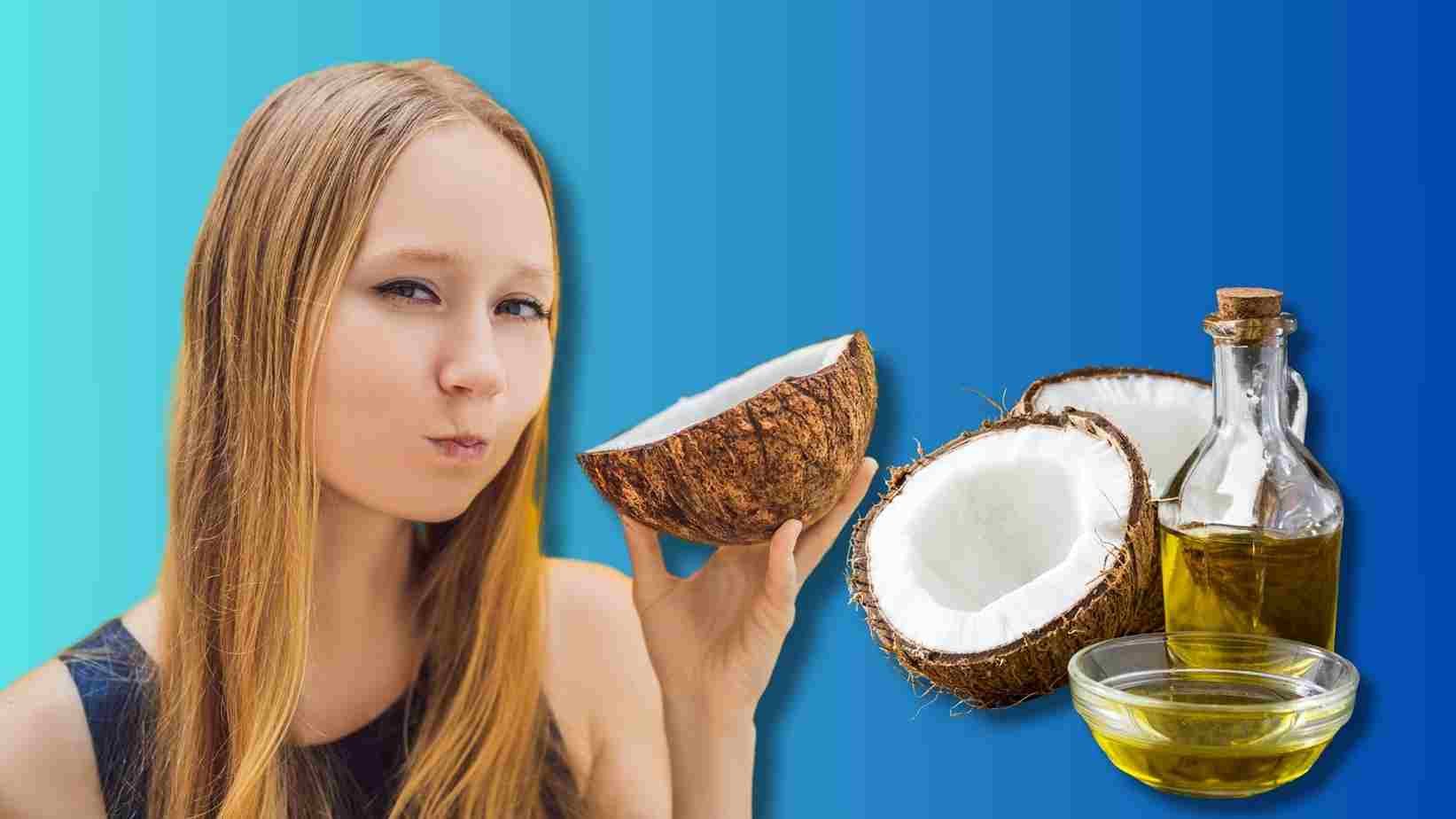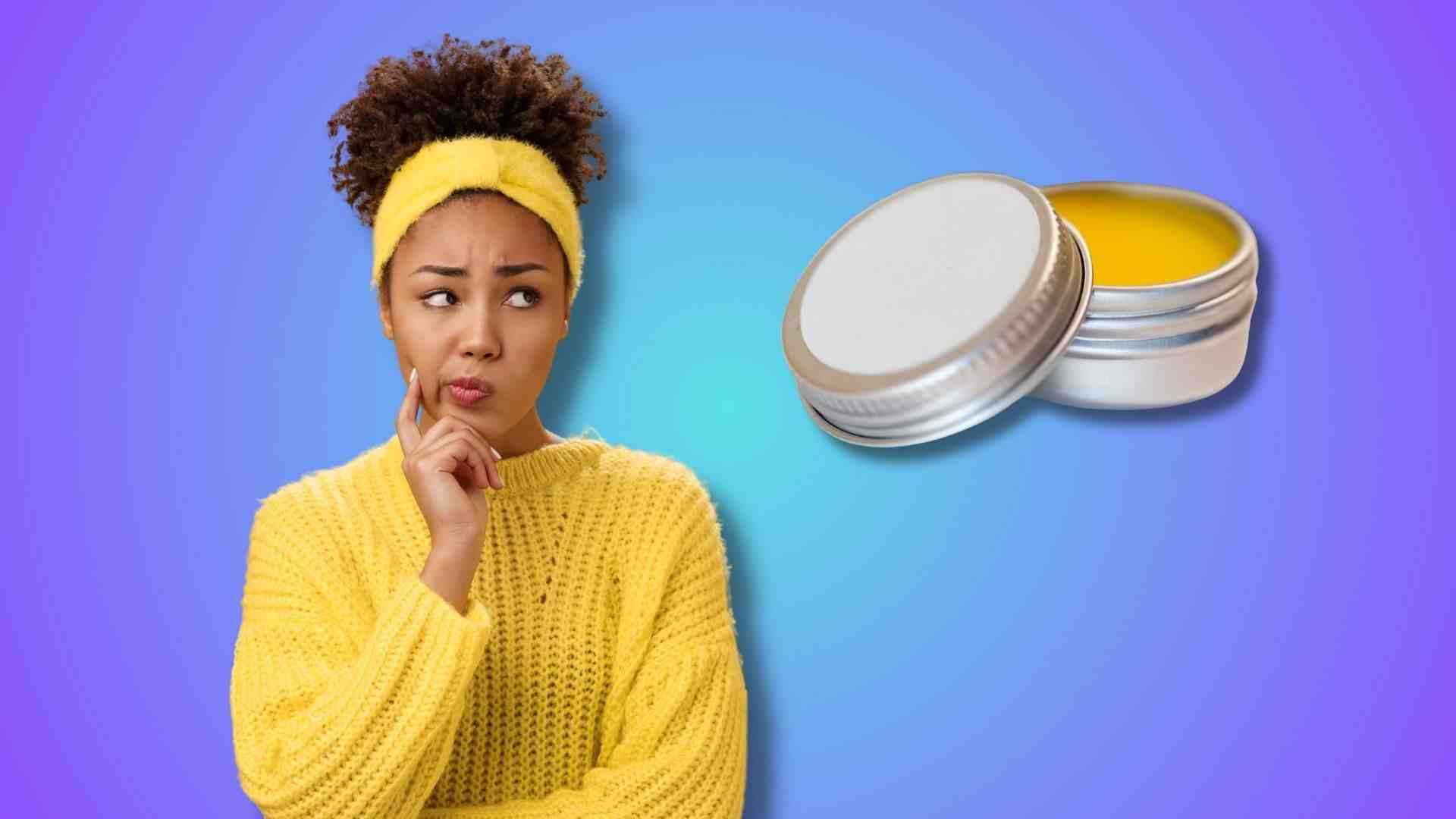Is Oil Pulling Safe?
Yes, oil pulling is safe. In fact, oil pulling is widely considered a safe practice when done correctly and simply involves swishing a tablespoon of edible oil in your mouth for around 15-20 minutes before spitting it out.
This method, rooted in Ayurvedic tradition, aims to improve your oral health by getting rid of harmful bacteria and disrupting plaque buildup. To ensure your safety, it's important not to swallow the oil after pulling as it collects bacteria from your mouth.
Further, it's popular to use high-quality, organic oils such as coconut, sesame, or sunflower oil, and you should make sure you're not allergic to the oil you choose. Additionally, if you have dental restorations like fillings or crowns, be mindful that vigorous swishing could potentially dislodge them.
Further, because oil pulling does not remineralize teeth, be aware that it should not replace brushing with remineralizing toothpaste.
In this article, I'll explain everything you need to know about the safety of oil pulling and how to do oil pulling correctly.
What is oil pulling?

Oil pulling is a traditional Ayurvedic practice for improving oral hygiene and for spiritual benefits.
It involves swishing oil in your mouth for about 20 minutes to remove bacteria and dislodge buildup between your teeth. Back then, this process was used to treat bad breath and gum disease and, while less common now, continues to be practiced today for similar benefits.
While oil pulling was originally conducted with sesame and sunflower oil, virgin coconut oil is more common now. Any oil, including sunflower oil or olive oil, can be used for oil-pulling therapy, but coconut oil has been popularized due to its high lauric acid content and pleasant taste.
Just remember, to maximize the oral health benefits of oil pulling, we recommend brushing with toothpaste tablets, flossing with expandable floss, and using a tongue scraper daily.
Where does oil pulling come from?
Oil pulling originates from Ayurveda, an ancient system of medicine that has been practiced in India for thousands of years. This traditional health practice is mentioned in the Charaka Samhita, one of the key texts of the Ayurvedic tradition, where it is referred to as "Kavala" or "Gandusha."
Ayurveda emphasizes balance in bodily systems and uses diet, herbal treatment, and yogic breathing to maintain or improve health. Oil pulling is believed to promote oral hygiene, balance the doshas (body energies), and improve overall health according to Ayurvedic principles.
While oil pulling is an ancient practice with many practitioners, please note that the American dental Association does not endorse it.
How does oil pulling work?

Oil pulling works by dislodging harmful bacteria from between your teeth before it has a chance to organize into plaque.
Essentially, the oil helps emulsify the bacteria and debris in your mouth, allowing it to be spit out after ~20 minutes. Clinical and diagnostic research suggests that this practice supports a healthy oral microbiome.
That being said, it takes about 20 minutes for oil pulling to have a significant impact on your oral hygiene. Therefore, it is one of the more labor-intensive oral health practices and may not fit into your daily oral hygiene routine.
So, is oil pulling safe?
Yes, oil pulling is generally considered safe for most people when performed correctly. At a high level, oil pulling involves swishing edible oil in your mouth for a period, then spitting it out, which poses little risk if you're using high-quality, organic oils like coconut or olive oil.
Just be aware that it's important not to swallow the oil you use for pulling because it contains bacteria pulled from your mouth. Otherwise, swallowing the oil can lead to stomach discomfort.
Further, if you have dental restorations, such as fillings or crowns, there's a small chance that the swishing action could dislodge them if they are already loose or weakened. While this is rare, it's something to consider and possibly discuss with your dentist.
Oil Pulling Benefits

Proponents of oil pulling with coconut oil (or any other oil) suggest that it has benefits that include:
-
Reducing oral bacteria associated with cavities and gingivitis
-
Fighting plaque induced gingivitis
-
Whitening teeth
-
Eliminating bad breath
-
Preventing periodontal disease progression
-
Lowering risk of tooth decay
These potential benefits largely come from oil pulling’s presumed ability to reduce bacterial load in your mouth.
However, there is no academic consensus on the benefits of oil pulling due to the lack of clinical research.
Bacteria
There is some evidence that oil pulling may reduce the number of bacterial colonies living in your mouth.
However, this is a newly evolving field of research and more evidence is required to fully understand the impact.
Bad Breath
By reducing the number of bacterial colonies in your mouth, oil pulling may have some impact to reduce the incidence of halitosis.
Plaque Buildup
Oil pulling is an effective treatment against plaque. In fact, one study found that "both coconut oil and sesame oil can be used for oil-pulling therapy with the aim of plaque regrowth inhibition".
Interestingly, this study also found that this same mechanism had a positive impact on tooth staining as well.
Gingivitis and Inflammation
Preliminary evidence shows that oil pulling may help fight gingivitis by reducing your plaque index. However, it is unclear how significant these results are and whether they can be replicated.
Main Side Effects of Oil Pulling

Oil pulling is generally considered safe although it may lead to some side effects in certain individuals.
These side effects can include nausea, upset stomach, or an unpleasant taste in the mouth, especially if you do not spit out the oil properly after swishing. Some people may also experience jaw fatigue or soreness from the prolonged swishing motion required when they practice oil pulling.
Additionally, there have been rare reports of lipoid pneumonia, a condition caused by inhaling small amounts of oil into the lungs, although this risk is extremely low when oil pulling is done correctly.
Let's walk through some of the oil pulling side effects in greater detail.
Nausea
Swallowing oil during oil pulling can lead to feelings of nausea, particularly if you accidentally ingest a significant amount. This sensation may occur due to the texture or taste of the oil or just from your stomach's reaction to the oil.
To prevent any discomfort, it's crucial to spit out the oil thoroughly after swishing. Further, you can start by swishing with a small amount of oil before gradually progressing to a larger amount of oil and a longer duration of oil pulling. Finally, you can choose to start with a lighter oil that has a milder taste like sunflower oil.
Upset Stomach
Along with nausea, ingesting oil during oil pulling may cause an upset stomach for some people. This discomfort can manifest as abdominal pain, bloating, or indigestion.
To prevent this from happening, make sure that you fully spit out all of the oil after oil pulling and do your best to avoid swallowing it. You can also rinse your mouth out thoroughly with water after oil pulling to remove any residual oil that may otherwise cause stomach discomfort.
Jaw Fatigue or Soreness
Unfortunately, the repetitive swishing motion required during oil pulling can lead to jaw fatigue or soreness, especially if you perform it for an extended period. This discomfort may arise from overuse of the jaw muscles and typically resolves with rest.
Taking breaks or reducing the duration of oil pulling sessions can help alleviate this issue. Additionally, you can try gently massaging the jaw muscles before and after oil pulling to help prevent fatigue and soreness.
Lipoid Pneumonia
In rare cases, inhaling small amounts of oil into the lungs during oil pulling may lead to lipoid pneumonia, a type of pneumonia caused by lipid or oil aspiration. While the risk is minimal when oil pulling is performed correctly, it's essential to be cautious and avoid inhaling the oil.
To minimize the risk of lipoid pneumonia, you should ensure you're using the proper technique for oil pulling, which involves swishing the oil around your mouth and then spitting it out, rather than inhaling or swallowing it.
Allergic Reactions
Individuals with allergies to certain oils, such as coconut or sesame oil commonly used for oil pulling, may experience allergic reactions. Symptoms can include itching, rash, or swelling of the mouth or throat. If this sounds like you, make sure to choose an oil that you tolerate well and discontinue use if any allergic symptoms occur.
How to do Oil Pulling Therapy

To oil pull effectively to improve oral health, follow these steps:
-
First choose your oil: Select a high-quality, edible oil such as coconut oil, sesame oil, or sunflower oil. Coconut oil pulling is popular due to its pleasant taste and potential antibacterial properties, but oil pulling with coconut oil isn't the end-all-be-all of this practice.
-
Measure the oil: Take about 1-2 tablespoons of oil and put it in your mouth.
-
Swish the oil: Swish the oil around in your mouth for about 15-20 minutes. Be sure to pull the oil through your teeth and around your gums. Avoid gargling or swallowing the oil.
-
Spit out the oil: After 15-20 minutes, spit the oil out into a trash can or tissue. Don't spit it into the sink as it could solidify and clog your drain over time.
-
Rinse your mouth: Rinse your mouth thoroughly with warm water or salt water to remove any remaining oil residue.
-
Don't forget to brush your teeth: To avoid improper, poor oral hygiene, be sure to follow up with your regular oral hygiene routine, including brushing with toothpaste tablets and flossing.
Repeat this process daily or several times a week for best results. Most people practice oil pulling in the morning before eating instead of at night.
In summary, oil pulling is an effective, easy-to-implement practice that can have great benefits for your dental health.
What oil should you use for oil pulling?
When selecting an oil for oil pulling, your best options are coconut, sesame, or sunflower oil.
Each of these oils offers unique benefits that can contribute to oral health. For example, coconut oil is a favorite due to its antimicrobial properties, primarily because of its high lauric acid content, which has antimicrobial properties and may help reduce harmful mouth bacteria.
Many people also appreciate coconut oil pulling for its pleasant taste and texture. Choosing between these oils often comes down to personal preference, particularly in terms of taste and how the oil feels in your mouth.
While the choice of oil doesn't particularly matter, it's most important to use high-quality, unrefined, and organic oil to ensure you're pulling with the purest form possible and minimizing exposure to any potential additives.
Other Tips for Great Oral Health
In addition to incorporating tongue scraping into your oral care routine, there are several other tips you can follow to improve your oral health.
Brush With Nano Hydroxyapatite Toothpaste
Brushing with nano hydroxyapatite toothpaste is beneficial for strengthening tooth enamel, remineralization, and preventing and reversing tooth decay.
Nano hydroxyapatite is a natural mineral that makes up the majority of our tooth structure and has been shown to remineralize enamel, making it more resistant to acid attacks from bacteria.
By using toothpaste with nano hydroxyapatite, you can help protect your teeth from decay and maintain a healthy smile.
Use Expanding Floss Daily
Using expanding floss daily is essential for removing plaque and food particles from between your teeth and along the gumline. Expanding floss is designed to expand when it comes into contact with saliva, allowing it to clean more effectively between tight spaces and beneath the gumline.
By flossing daily, you can reduce your risk of demineralization and tooth decay, gum issues, and bad breath.
Avoid Smoking and Consuming Tobacco Products
Avoiding smoking and consuming tobacco products is crucial for maintaining good oral health. Tobacco use can lead to a wide range of dental problems, including stained teeth, bad breath, gum disease, and oral cancer.
Quitting smoking and avoiding other tobacco products can significantly improve your oral health and reduce your risk of developing serious dental issues in the future.
Swap Out Your Toothbrush Every 3 Months
Swapping out your toothbrush every three months is important for maintaining effective oral hygiene. Over time, toothbrush bristles can become worn and frayed, making them less effective at removing plaque and debris from your teeth and gums.
By replacing your toothbrush regularly, you ensure that you're using a tool that can clean your teeth effectively and help prevent oral health problems down the line.
Frequently Asked Questions
Are there any risks to oil pulling?
While oil pulling is generally safe, some individuals may experience mild side effects such as nausea, upset stomach, jaw fatigue, allergic reactions to specific oils, or dental issues if regular oral hygiene practices are neglected. It's crucial to start with small amounts of oil and gradually increase the duration and frequency of oil pulling to minimize the risk of adverse reactions. If you encounter persistent discomfort or reactions, discontinue oil pulling and consult with a healthcare professional.
Why don't dentists recommend oil pulling?
Dentists generally do not recommend oil pulling because there is limited scientific evidence to support its effectiveness for improving oral health. While some proponents claim benefits such as reducing harmful bacteria and improving gum health, these claims are not well-supported by research. Additionally, oil pulling is not a substitute for regular oral hygiene practices such as brushing and flossing, which are essential for maintaining good oral health. It's important to consult with your dentist for personalized advice on oral care practices.
Is it OK to do oil pulling everyday?
It's generally considered safe to do oil pulling every day, but it's important to be mindful of your body's response and any potential side effects. Some people find benefits from oil pulling when done daily, such as improved oral hygiene and fresher breath. However, others may experience mild side effects or discomfort, particularly if they have sensitivities to the oil or if the process causes jaw fatigue. If you choose to do oil pulling daily, start with a small amount of oil and gradually increase the duration and frequency to see how your body responds. If you experience any adverse effects, consider reducing the frequency or discontinuing oil pulling altogether. As always, it's a good idea to consult with a healthcare professional if you have any concerns or underlying health conditions.
Why do my teeth hurt after oil pulling?
While some claim it alleviates tooth pain, others experience discomfort. Teeth may hurt after oil pulling due to various reasons: vigorous swishing causing strain on jaw muscles, sensitivity to the oil's temperature, or the oil's acidity irritating dental tissues. Additionally, existing dental issues like cavities or gum disease can exacerbate discomfort. For gentle option, consider using alcohol-free mouthwash, which can provide similar benefits without the potential risks associated with oil pulling.
What are the cons of oil pulling for teeth?
While oil pulling may offer potential benefits like reducing plaque and improving gum health, there are drawbacks to consider. These include the lack of scientific evidence supporting its efficacy, the necessity of maintaining traditional oral care practices like brushing and flossing, the time commitment involved in oil pulling, potential discomfort, and the risk of accidental inhalation, particularly for young children or those with difficulty controlling mouth movements. Thus, it's crucial to view oil pulling as a supplementary practice alongside established oral hygiene routines and to consult with a dentist for personalized advice.
Does oil pulling damage gums?
Vigorous swishing of oil in the mouth could potentially irritate or damage sensitive gum tissues, especially if done excessively or aggressively. Additionally, if oil pulling is used as a substitute for regular brushing and flossing, it may contribute to gum disease and other oral health issues. It's important to practice oil pulling cautiously and in conjunction with a comprehensive oral hygiene routine, including brushing, flossing, and regular dental check-ups. If you experience any discomfort or adverse effects, consult with a dentist.
Why do my teeth hurt after oil pulling?
Teeth can feel sensitive after oil pulling due to the acidity or antibacterial effects of certain oils, which can temporarily irritate the gums or expose dentin. Swishing oil for too long might also cause fatigue in the mouth muscles, leading to discomfort. In some cases, oil pulling may disrupt the balance of natural mouth bacteria, causing mild irritation. For better protection and a balanced approach to oral health, using a non-alcohol mouthwash is still recommended.
Does pulling oil actually work?
Oil pulling has been practiced for centuries and may offer some oral health benefits, like reducing bacteria and freshening breath. Studies suggest it can help decrease plaque and gingivitis to a degree, though it’s not as effective as standard dental practices like brushing, flossing, and using mouthwash. The oil works by “pulling” bacteria from the mouth, but evidence is still limited. For best results, use oil pulling as a supplement, not a replacement, alongside non-alcohol mouthwash and regular dental care.
Should I brush my teeth immediately after oil pulling?
Yes, it’s generally recommended to brush your teeth after oil pulling. Oil pulling helps remove bacteria and debris from the mouth, but brushing afterward ensures these particles are fully cleaned away. Brushing also removes any remaining oil residue, leaving your mouth feeling fresh. Using a non-alcohol mouthwash afterward can further support oral hygiene and freshness.
Is oil pulling bad for your lungs?
Oil pulling is generally safe, but accidentally inhaling the oil during the process could pose risks to your lungs. This can lead to lipid pneumonia, a condition caused by oil particles entering the lungs and triggering inflammation. To avoid this, be sure to swish the oil gently without excessive force. For added oral health benefits, supplement oil pulling with a non-alcohol mouthwash.






















